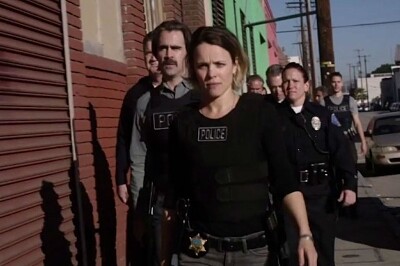Maybe the second season of HBO's "True Detective" was doomed to fall short of expectations.
The show's first season wasn't without its critics, but overall the reviews were good, the show got a lot of positive buzz, and the bar for season two was high.
Safe to say, this time around, it hasn't measured up.
The show has become a big target with critics. Take one look at Twitter, and you can feel the hate:
A visual guide to
's season two decline: http://t.co/GCeJ2w8iMl pic.twitter.com/oIhKkfQQnA
— Variety (@Variety)
A visual guide to #TrueDetective's season two decline: http://t.co/GCeJ2w8iMl pic.twitter.com/oIhKkfQQnA
— Variety (@Variety) August 4, 2015
There is of course still some love out there for the show, but there's also a good amount of "hate-watching" and even "hope-watching" going on— that is, when you keep watching a show hoping that that it will get better:
Slowest show ever
. It's like the ex you keep going back to hoping it will change.
— Vicki G. (@kcvickig)
Slowest show ever @TrueDetective. It's like the ex you keep going back to hoping it will change. #truedetective
— Victoria R. (@kcvickig) July 27, 2015
I am
True Detective 2 because I have high hopes for Rachel McAdam's hair improving.
— CPM Yamaguchi (@MimsyYamaguchi)
@KPCC @taketwo I am #hopewatching True Detective 2 because I have high hopes for Rachel McAdam's hair improving.
— Mimsy (@MimsyYamaguchi) August 4, 2015
And it's not just "True Detective"— legions of TV watchers find themselves continuing to follow along even when their shows start to generate an immodest amount of eye-rolling.
Variety columnist and critic Brian Lowry has been mulling over this bizarre behavior, and wrote about it recently. He joined Take Two to talk about the phenomenon.
To hear the full interview with Brian Lowry, click the link above.



